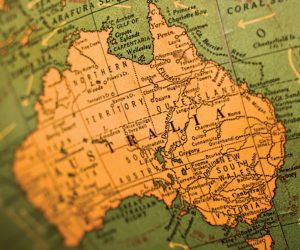Kate gambled away $500k. When she called a support line, the advice she received was far from helpful

- by Admin
- October 30, 2024
When Kate Seselja asked for help amid her “debilitating” gambling addiction, the advice she was given stuck with her for all the wrong reasons.
It was 2003, and she was six years into a cycle filled with shame and secrecy.
At this point in her life, she was married and one of her six children had been born, but Ms Seselja had reached a “crisis point” in her addiction.
She called the support line service.
“I was just told, ‘Don’t wear shoes. If you don’t wear shoes, you then won’t be able to get into a venue by security, and you won’t be able to gamble’.”
It left Ms Seselja feeling defeated, as she knew that not wearing shoes would do little to fix the root causes of her habit.
“I then asked the support line if there was a NSW rehab for gambling addicts. She replied, ‘There isn’t, and if there was, they would just be for men’.”
‘It almost put me in the ground’
Ms Seselja was 18 when she gambled for the first time. She was at a local club in Sydney along with her then-boyfriend.
The shiny exterior of the poker machines, along with their accessibility, drew her in. It was also something for her and her partner to do together.
“I had absolutely no awareness that being in a venue that houses gambling could be a potentially unsafe environment for me,” she said.
“Soon I found myself going through my whole pay packet within an hour of payday.”
Kate Seselja credits her family’s close-knit bond for helping her in recovery. (ABC News: Supplied)
In the early stages of her addiction, Ms Seselja was still living at home with her parents.
She felt sheltered from the full impacts of her gambling, because she didn’t have to use her pay to keep the lights on or put food on the table. When she moved out though, she immediately felt the financial squeeze.
As the years went on, Ms Seselja met her now-husband and they had their kids, though her visits to the pokies grew.
She lost about $500,000 during her 15-year addiction.
“The shame almost put me in the ground on a number of occasions. The conclusion I kept coming to was that I was the problem.
“The morning after I almost took my own life, my husband begged me to go and see a counsellor.”
In 2012, she managed to get the expert support she needed and stopped gambling.
Over half of adults in NSW gamble each year, the rates of which have led to the state being considered the ‘gambling capital’ of Australia.
Pokies present more risk of harm than any other form of gambling, with people in the state having lost a record $8.1 billion on pokies last year, according to anti-gambling group Wesley Mission.
Last year, NSW had 87,545 poker machines in pubs and clubs — 895 more machines than at the end of 2022. (ABC News: Danielle Bonica)
Could peer support address gambling addiction?
Last week the NSW government announced an incentive that would connect people seeking help with gambling harm to those who have had a similar lived experience.
The Office of Responsible Gambling said training would be given to peer support workers who are in recovery to help them offer relatable perspectives and advice.
The service will see seven peer support workers operating across the state, with another four expected to come on board by early 2025.
Minister for Gaming and Racing David Harris said the incentive was a step forward in their “efforts to reduce gambling harm across NSW”.
“Strategies like sticking to limits, not chasing losses, only gambling while sober, and balancing gambling with other activities, are all simple but important ways that people who choose to gamble can do so more safely.”
NSW Gaming and Racing Minister David Harris believes this new initiative will help reduce gambling harm in the state. (AAP: Bianca De Marchi)
Martin Thomas, CEO of Alliance for Gambling Reform, said while he welcomed this initiative from the government, he feared it wouldn’t go far enough.
“It is important for people who are struggling with gambling to be able to speak with other people with lived experience. But Australia is in desperate need for real and lasting gambling reforms at both federal and state and territory level,” he said.
Mr Thomas added that while services have improved, reform to the sector should be the focus.
“It is currently a case of having more ambulances at the bottom of the cliff rather than building a fence at the top of the cliff.”
A parliamentary inquiry report into gambling harm, chaired by MP Peta Murphy, made 31 recommendations for changing the way Australians gamble.
Fourteen months on, Mr Thomas said advocacy groups were still waiting to see tangible action or a formal response from the federal government.
‘It feels hollow’
Ms Seselja also holds concerns that government measures aren’t addressing harm at the source.
“Until the government puts safeguards around the products, all of the rest of it is just shuffling deckchairs on the Titanic,” she said.
“You can provide all the peer support in the world but it won’t stop people from falling into the trap of gambling.”
Kate Seselja said she’s now focused on providing support and advocacy via The Hope Project. (ABC News: Supplied)
Ms Seselja, who has since relocated to Canberra, continues to do advocacy work across NSW.
“I just got back from spending a week in a town in rural NSW, after they reached out for support,” she said.
“This town has 1,500 people in it and the surrounding local government area loses $50,000 a day [to gambling expenses].
“These communities are haemorrhaging.”
Ms Seselja has been in recovery for 12 years now. She no longer “drowns in shame”.
“That’s why I became a recovery coach — to be able to speak truth to people who are experiencing gambling harm. I want to try and change it systemically because the people in power are always skirting around the edges of the problem.”
The Latest News
-
December 22, 2024The remarkable Lleyton Hewitt feat Cruz Hewitt can emulate after being handed 2025 Australian Open wildcard
-
December 22, 2024Forgotten man removes himself from Test talk
-
December 22, 2024Tiger Woods’ son Charlie makes a hole-in-one in the final round of the PNC Championship – Australian Golf Digest
-
December 22, 2024Tennis’ love match: Meet ‘Aussie’ Matteo Arnaldi and his Melburnian girlfriend
-
December 22, 2024GEORGIE PARKER: McSweeney was McStiff to get axed





